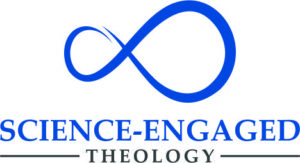What is Science-Engaged Theology (SET)?
“The world as God created it is full of contingencies. Therefore we do not merely think about it in our armchairs, trying to infer from first principles how many teeth there are in a horse’s mouth; instead we take a look. The same should go for the question how God acts in the world.”[1]

By science-engaged theology, we have in mind a vision of science as an authentic theological source – alongside scripture, tradition, and reason.
Some Christian theologians hesitate to use empirical research. This is surprising since, until recently, there was a long history of theologians using exactly this type of evidence. Consider that the leading scientists in the seventeenth century were nearly all religiously interested. Thomas Aquinas himself never ignored what we could learn from our senses. There are sound reasons for this connection, which can be stated—in varying ways—in Protestant, Catholic, and Orthodox doctrines of creation.
Our hypothesis is that some theologians fear incorporating empirical data because they worry that once they start to do so, theology’s distinctiveness could be lost, and be replaced by:
- Religious studies, using the methods of sociology and cultural anthropology,
- ‘Science & Religion,’ dealing with the relation between those disciplines in the modern university and the relative authority of each, or
- The scientific study of religion, mostly associated with the journal of that name.
Theologians with these worries don’t necessarily think these three are problematic, but they see theology as different and something of unique value. We agree. We argue, however, that they are wrong to think that any use of empirical evidence in theology inevitably reduces to one of these three.
So, what should we do? Sometimes you need good natural sciences to answer theological questions; not always, but sometimes. Put another way, some puzzles in theology require empirical inquiry. As an initiative, our project simply encourages theology to be done well, on those questions that cannot be satisfactorily answered without some sort of science engagement. Its hallmarks are to start with a thoroughgoingly theological problem which requires the theologian to be well-versed in some specific science.
Because science-engaged theology is not itself a theological method, we hesitate to pose ‘rules’, but some rules of thumb will help mark out when it is done well.
- Encouraging a focus on the individual sub-disciplines. So, the relevant disciplines aren’t ‘science and religion’ but will be, e.g., biology and liturgy, or ecology and stewardship.
- Emphasizing training in multiple toolsets, as opposed to conceiving of it via interdisciplinary roles. So, never using phrases such as, “As a scientist I can say x; as a Christian, I say y.” But rather saying, “Using DNA testing I can see x, and with exegesis interpret the pope as saying y.”
- Being upfront about the questions we ask of theology. Above, we intentionally used the word puzzles; everyone knows what it is to solve a puzzle—or to fail to solve it. We should aspire to be similarly upfront in theology, never stating our goal as ‘doing theology’ (whatever that is), or something similarly wishy-washy.
As an example, take classic questions in theodicy. Both of the following are good theological questions: “It there a logical contradiction between God’s omnipotence and goodness and the presence of suffering?” and “What is the best way to help a Christian parent grieve her lost child?” But what constitutes a sound answer to each differs, even though both are equally theological. Trying to solve the second (helping the parent) with the right answer for the first (clarifying the possible contradiction), and vise-versa, is an endless source of confusion. Lots of different forms of theological inquiry are fair game; what matters is ensuring that our success conditions match our mode of inquiry.
- Valuing the curiosity to always keep digging in the face of anomalies. This is contra perspectives like intelligent design, which is too ready to call everything they don’t understand a miracle, and someone like Richard Dawkins, who is too hesitant to say, “It’s not fully solved; some anomalies remain.”
- Positing no in principle queen of the sciences.
[1] Alvin Plantinga 1997